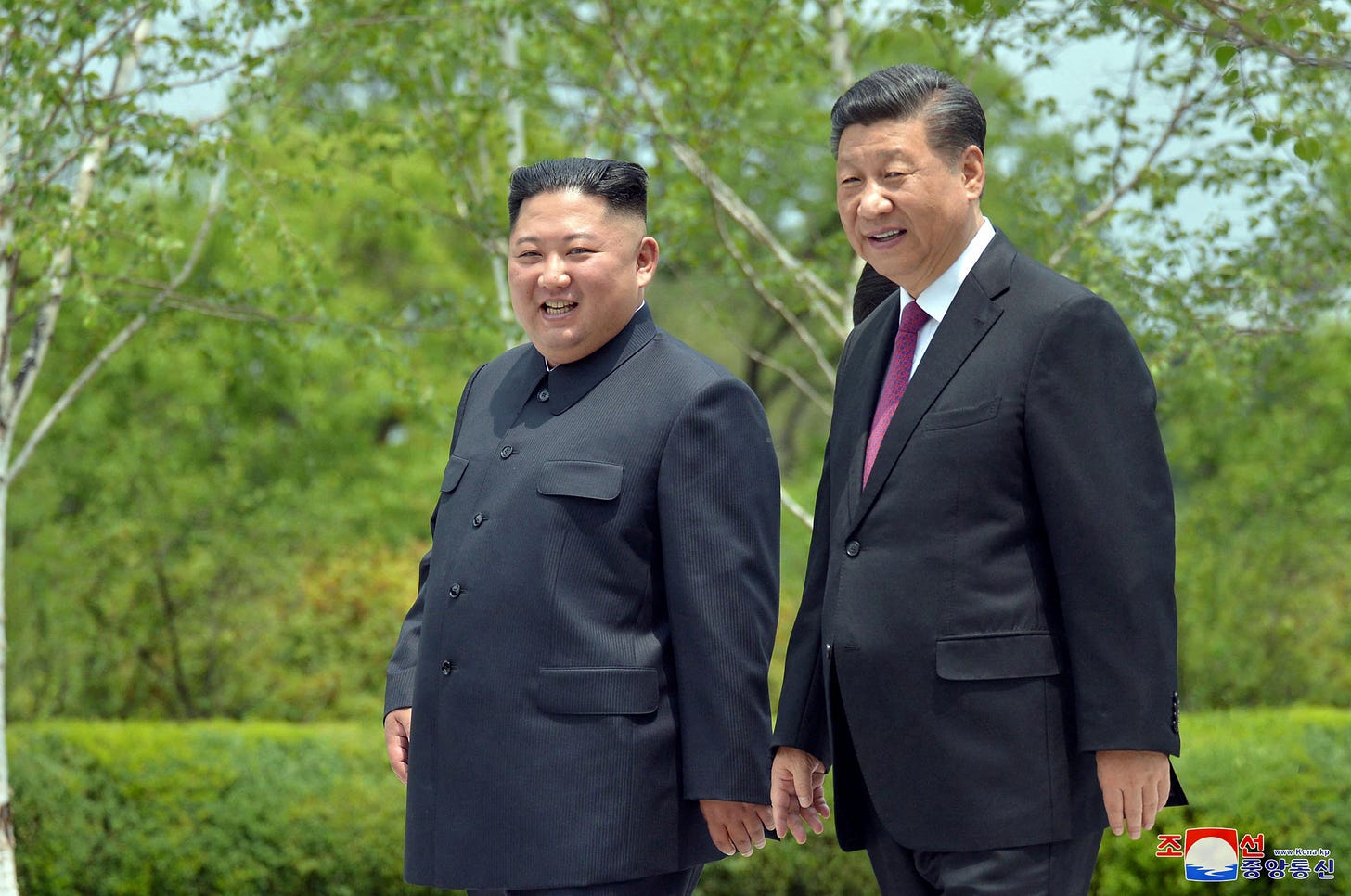On September 3, 2025, Beijing’s Tiananmen Square will host a grand military parade to commemorate the 80th anniversary of Japan’s surrender in World War II, marking the end of the conflict and China’s resistance against Japanese aggression. This “Victory Day” parade, one of China’s largest in years, will showcase the People’s Liberation Army’s latest weaponry, including fighter jets, hypersonic missiles, and anti-drone systems, with tens of thousands of troops marching in formation.
Among the 26 foreign leaders attending this highly choreographed event will be North Korean leader Kim Jong Un, a rare international appearance for the reclusive dictator, alongside Russian President Vladimir Putin and other heads of state from nations like Iran, Belarus, and Indonesia. The presence of Kim and Putin signals a bold show of solidarity among Beijing, Pyongyang, and Moscow, with implications that the United States must closely monitor.
The parade itself is a potent symbol of China’s growing military might and its desire to project influence on the global stage. Under President Xi Jinping’s oversight, the event will highlight China’s advanced military technology and its new force structure, a spectacle designed to assert Beijing’s role as a diplomatic and strategic heavyweight. For Xi, hosting leaders like Kim and Putin is a diplomatic coup, reinforcing China’s position as a counterweight to the U.S.-led world order. The absence of Western leaders, except for Slovakia’s Prime Minister Robert Fico and Serbia’s President Aleksandar Vucic, underscores the parade’s role as a stage for nations skeptical of or defiant toward Western influence.
Kim Jong Un’s attendance is particularly significant. It marks his first trip to China since January 2019 and his first multilateral gathering with multiple world leaders since assuming power in 2011. North Korea’s participation, confirmed by both Chinese and North Korean state media, reflects a strategic move by Kim to bolster his international stature while navigating the delicate balance between his two key allies, China and Russia. This is the first time a North Korean leader has attended a Chinese military parade since 1959, signaling a potential warming of ties between Beijing and Pyongyang after years of strain.
The North Korea-China Relationship: A Complex Alliance
China has long been North Korea’s primary political and economic patron, accounting for roughly 98% of Pyongyang’s external trade in 2023 and serving as a lifeline for its heavily sanctioned economy. The two nations share a formal alliance through a 1961 mutual defense treaty, and their “traditional friendship” was emphasized by China’s Assistant Foreign Minister Hong Lei, who noted their shared history of resisting Japanese aggression during World War II. However, relations have not been without tension. Since 2020, ties have cooled over issues like Beijing’s push to repatriate North Korean laborers and Kim’s growing alignment with Russia, particularly after Pyongyang began supplying Moscow with munitions and troops for its war in Ukraine.
Kim’s visit to Beijing suggests an effort to recalibrate this relationship. North Korea relies on China for nearly 90% of its food imports and hopes to resume Chinese tourism, which brought 300,000 visitors to the country in 2019 before the pandemic halted travel. For China, hosting Kim allows Xi to reassert influence over Pyongyang, especially as North Korea’s ties with Russia deepen. This balancing act is critical for Kim, who seeks to avoid over-reliance on either power while leveraging both to counter Western sanctions and enhance his regime’s legitimacy.
The parade offers Kim a rare opportunity to appear alongside other global leaders, projecting an image of North Korea as a “normal” state despite its pariah status and ongoing U.N. sanctions over its nuclear and ballistic missile programs. Analysts, such as Yang Moo-jin from the University of North Korean Studies in Seoul, suggest Kim aims to strengthen socialist solidarity with China and Russia while broadening his diplomatic outreach to Global South nations.
Unfolding Events and U.S. Concerns
The convergence of Xi, Kim, and Putin at the parade raises significant concerns for the United States, particularly in the context of shifting global alliances and regional tensions. The event underscores a growing alignment among China, North Korea, and Russia, often described as an “Axis of Upheaval” by Western analysts, aimed at countering U.S. influence. This alignment is particularly troubling given North Korea’s expanding nuclear arsenal and its military support for Russia, which has reportedly included advanced weapons technology transfers in exchange for food, oil, and cash.
For the U.S., several developments demand attention. First, Kim’s presence in Beijing strengthens Xi’s diplomatic leverage ahead of potential talks with President Donald Trump, who recently expressed interest in meeting Kim and is reportedly considering an Asia visit in October 2025. Xi’s ability to brief Trump on discussions with both Kim and Putin could give China a strategic edge in negotiations over issues like tariffs, the Ukraine conflict, and North Korea’s nuclear program. Past U.S.-North Korea summits in 2018 and 2019 collapsed without progress on denuclearization, and Kim has since doubled down on his nuclear ambitions, making any future dialogue fraught with challenges.
Second, the parade highlights China’s assertive posture toward Taiwan and its territorial disputes in the South China Sea, which could embolden North Korea’s own provocations on the Korean Peninsula. The U.S., alongside allies like South Korea and Japan, must monitor whether Kim’s visit leads to increased Chinese support for North Korea’s military ambitions or a relaxation of sanctions enforcement.
Finally, the deepening North Korea-Russia partnership, cemented by a 2024 defense pact, complicates China’s efforts to maintain regional stability. While Beijing has publicly urged peace in Ukraine, it has been accused of supplying Russia with dual-use technology. Kim’s attendance at the parade may signal China’s tacit acceptance of North Korea’s role in Russia’s war effort, potentially straining U.S.-China relations further.


